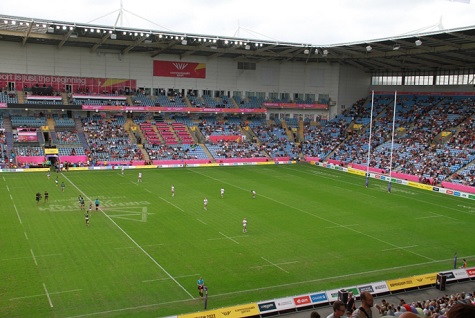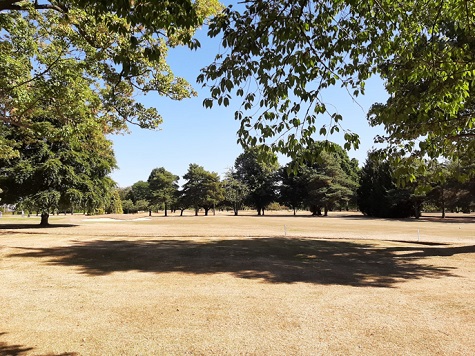What a feast of sport we have been enjoying these past few weeks – during one of the warmest summers on record!
Wimbledon, cricket, golf, the successful Women’s Euros Championships and not forgetting the recent 2022 Commonwealth Games held in Birmingham.
We must thank all the organisers of these events and more importantly recognise the hard work and detailed preparation carried out by the turf professionals at all these venues.
I was lucky enough to have the chance to attend the Games, watching the rugby sevens at the Coventry stadium. A feast of high-class sporting endeavour over three days, with a total of 16 teams competing in the men's tournament, while eight contested the women's tournament.

Australia's women won the Commonwealth Games rugby sevens gold, beating Fiji 22-12, while South Africa took gold in the men's competition with a 31-7 victory, also over Fiji.
It would seem from talking to a few people who attended the Games that the championships were well attended and well organised. I personally very much enjoyed the experience.
The sheer scale and logistics of staging an event on this scale is mind blowing. The actual cost of holding these games was £800m, however they have ensured a lasting legacy with all the newly-built facilities, providing a marvellous resources and jobs for the people of Birmingham.
With most of the summer sports now completed, the football season is now in full swing with turfpros busy preparing and repairing playing surfaces in sweltering conditions.
Certainly, a worrying time for those who do not have efficient watering systems. Which leads me on to . .
Hosepipe bans
There have been several hose pipe bans declared already, including early announcements from Hampshire and the Isle of Wright and areas of Kent and Sussex.
Yorkshire Water has also announced its first hosepipe ban in 27 years in the wake of low rainfall and high temperatures. It said reservoir levels had fallen below 50% for the first time since the drought of 1995 and it would take months of rain for them to recover.
The GMA have helpfully published a guide on temporary use bans, or hosepipe bans, with some up to date information.

A recent visit to Olton Golf Club allowed me to see the how the extreme hot temperatures had affected the facilities. The whole course was tinder dry, with the exception of the irrigated greens.
What are the rules of a hosepipe ban?
- Don’t use a hosepipe to water plants or clean your vehicle
- Don’t fill - or clean - a swimming pool, paddling pool, pond or fountain
- Don’t use a hosepipe to clean windows, walls, paths, patios or decking
- Don’t use a hosepipe to cool off in the heat
- But you can use other water sources, like using your mains water supply but with buckets or watering cans instead of hosepipes, or using stored rainwater from a water butt.
What’s the penalty during a ban?
Anyone found not following the rules could be prosecuted in a criminal court and fined up to £1,000, under section 76 of the Water Industry Act 1991.
What’s allowed during a ban?
- Using a hosepipe for health and safety reasons
- Watering newly laid turf for the first 28 days
- The watering of newly bought plants for the first 14 days
- Watering plants that are grown for sale or commercial use or that are part of a National Plant Collection or temporary display
- Filling or maintaining a pool in which fish or other aquatic animals are being reared
- People who are paid for car washing, window cleaning and graffiti removal can still use hosepipes
- Operating water features with religious significance
- Filling new pools, or those with religious significance
- To prevent or control the spread of disease or invasive species
- A hosepipe ban will end when there’s enough rainfall to fill affected reservoirs.